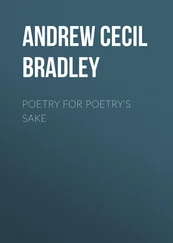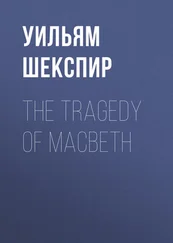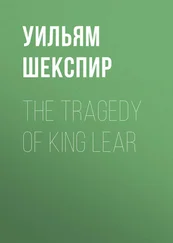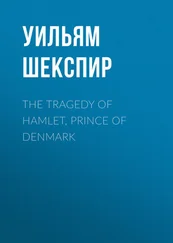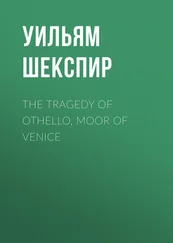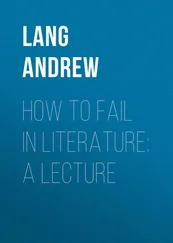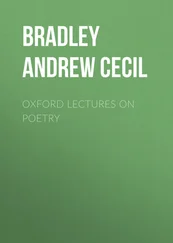Andrew Cecil Bradley - Shakespearean Tragedy - Lectures on Hamlet, Othello, King Lear, Macbeth
Здесь есть возможность читать онлайн «Andrew Cecil Bradley - Shakespearean Tragedy - Lectures on Hamlet, Othello, King Lear, Macbeth» — ознакомительный отрывок электронной книги совершенно бесплатно, а после прочтения отрывка купить полную версию. В некоторых случаях можно слушать аудио, скачать через торрент в формате fb2 и присутствует краткое содержание. Жанр: Биографии и Мемуары, foreign_antique, на английском языке. Описание произведения, (предисловие) а так же отзывы посетителей доступны на портале библиотеки ЛибКат.
- Название:Shakespearean Tragedy: Lectures on Hamlet, Othello, King Lear, Macbeth
- Автор:
- Жанр:
- Год:неизвестен
- ISBN:нет данных
- Рейтинг книги:5 / 5. Голосов: 1
-
Избранное:Добавить в избранное
- Отзывы:
-
Ваша оценка:
- 100
- 1
- 2
- 3
- 4
- 5
Shakespearean Tragedy: Lectures on Hamlet, Othello, King Lear, Macbeth: краткое содержание, описание и аннотация
Предлагаем к чтению аннотацию, описание, краткое содержание или предисловие (зависит от того, что написал сам автор книги «Shakespearean Tragedy: Lectures on Hamlet, Othello, King Lear, Macbeth»). Если вы не нашли необходимую информацию о книге — напишите в комментариях, мы постараемся отыскать её.
Shakespearean Tragedy: Lectures on Hamlet, Othello, King Lear, Macbeth — читать онлайн ознакомительный отрывок
Ниже представлен текст книги, разбитый по страницам. Система сохранения места последней прочитанной страницы, позволяет с удобством читать онлайн бесплатно книгу «Shakespearean Tragedy: Lectures on Hamlet, Othello, King Lear, Macbeth», без необходимости каждый раз заново искать на чём Вы остановились. Поставьте закладку, и сможете в любой момент перейти на страницу, на которой закончили чтение.
Интервал:
Закладка:
In developing, illustrating and qualifying this statement, it will be best to begin with the tragedies in which the movement is most clear and simple. These are Julius Caesar and Macbeth . In the former the fortunes of the conspiracy rise with vicissitudes up to the crisis of the assassination (iii. i.); they then sink with vicissitudes to the catastrophe, where Brutus and Cassius perish. In the latter, Macbeth, hurrying, in spite of much inward resistance, to the murder of Duncan, attains the crown, the upward movement being extraordinarily rapid, and the crisis arriving early: his cause then turns slowly downward, and soon hastens to ruin. In both these tragedies the simplicity of the constructional effect, it should be noticed, depends in part on the fact that the contending forces may quite naturally be identified with certain persons, and partly again on the fact that the defeat of one side is the victory of the other. Octavius and Antony, Malcolm and Macduff, are left standing over the bodies of their foes.
This is not so in Romeo and Juliet and Hamlet , because here, although the hero perishes, the side opposed to him, being the more faulty or evil, cannot be allowed to triumph when he falls. Otherwise the type of construction is the same. The fortunes of Romeo and Juliet rise and culminate in their marriage (ii. vi.), and then begin to decline before the opposition of their houses, which, aided by accidents, produces a catastrophe, but is thereupon converted into a remorseful reconciliation. Hamlet's cause reaches its zenith in the success of the play-scene (iii. ii.). Thereafter the reaction makes way, and he perishes through the plot of the King and Laertes. But they are not allowed to survive their success.
The construction in the remaining Roman plays follows the same plan, but in both plays (as in Richard II. and Richard III. ) it suffers from the intractable nature of the historical material, and is also influenced by other causes. In Coriolanus the hero reaches the topmost point of success when he is named consul (ii. iii.), and the rest of the play shows his decline and fall; but in this decline he attains again for a time extraordinary power, and triumphs, in a sense, over his original adversary, though he succumbs to another. In Antony and Cleopatra the advance of the hero's cause depends on his freeing himself from the heroine, and he appears to have succeeded when he becomes reconciled to Octavius and marries Octavia (iii. ii.); but he returns to Egypt and is gradually driven to his death, which involves that of the heroine.
There remain two of the greatest of the tragedies, and in both of them a certain difficulty will be felt. King Lear alone among these plays has a distinct double action. Besides this, it is impossible, I think, from the point of view of construction, to regard the hero as the leading figure. If we attempt to do so, we must either find the crisis in the First Act (for after it Lear's course is downward), and this is absurd; or else we must say that the usual movement is present but its direction is reversed, the hero's cause first sinking to the lowest point (in the Storm-scenes) and then rising again. But this also will not do; for though his fortunes may be said to rise again for a time, they rise only to fall once more to a catastrophe. The truth is, that after the First Act, which is really filled by the exposition, Lear suffers but hardly initiates action at all; and the right way to look at the matter, from the point of view of construction , is to regard Goneril, Regan and Edmund as the leading characters. It is they who, in the conflict, initiate action. Their fortune mounts to the crisis, where the old King is driven out into the storm and loses his reason, and where Gloster is blinded and expelled from his home (iii. vi. and vii.). Then the counter-action begins to gather force, and their cause to decline; and, although they win the battle, they are involved in the catastrophe which they bring on Cordelia and Lear. Thus we may still find in King Lear the usual scheme of an ascending and a descending movement of one side in the conflict.
The case of Othello is more peculiar. In its whole constructional effect Othello differs from the other tragedies, and the cause of this difference is not hard to find, and will be mentioned presently. But how, after it is found, are we to define the principle of the construction? On the one hand the usual method seems to show itself. Othello's fortune certainly advances in the early part of the play, and it may be considered to reach its topmost point in the exquisite joy of his reunion with Desdemona in Cyprus; while soon afterwards it begins to turn, and then falls to the catastrophe. But the topmost point thus comes very early (ii. i.), and, moreover, is but faintly marked; indeed, it is scarcely felt as a crisis at all. And, what is still more significant, though reached by conflict, it is not reached by conflict with the force which afterwards destroys it. Iago, in the early scenes, is indeed shown to cherish a design against Othello, but it is not Iago against whom he has at first to assert himself, but Brabantio; and Iago does not even begin to poison his mind until the third scene of the Third Act.
Can we then, on the other hand, following the precedent of King Lear , and remembering the probable chronological juxtaposition of the two plays, regard Iago as the leading figure from the point of view of construction? This might at first seem the right view; for it is the case that Othello resembles King Lear in having a hero more acted upon than acting, or rather a hero driven to act by being acted upon. But then, if Iago is taken as the leading figure, the usual mode of construction is plainly abandoned, for there will nowhere be a crisis followed by a descending movement. Iago's cause advances, at first slowly and quietly, then rapidly, but it does nothing but advance until the catastrophe swallows his dupe and him together. And this way of regarding the action does positive violence, I think, to our natural impressions of the earlier part of the play.
I think, therefore, that the usual scheme is so far followed that the drama represents first the rise of the hero, and then his fall. But, however this question may be decided, one striking peculiarity remains, and is the cause of the unique effect of Othello . In the first half of the play the main conflict is merely incubating; then it bursts into life, and goes storming, without intermission or change of direction, to its close. Now, in this peculiarity Othello is quite unlike the other tragedies; and in the consequent effect, which is that the second half of the drama is immeasurably more exciting than the first, it is approached only by Antony and Cleopatra . I shall therefore reserve it for separate consideration, though in proceeding to speak further of Shakespeare's treatment of the tragic conflict I shall have to mention some devices which are used in Othello as well as in the other tragedies.
3
Shakespeare's general plan, we have seen, is to show one set of forces advancing, in secret or open opposition to the other, to some decisive success, and then driven downward to defeat by the reaction it provokes. And the advantages of this plan, as seen in such a typical instance as Julius Caesar , are manifest. It conveys the movement of the conflict to the mind with great clearness and force. It helps to produce the impression that in his decline and fall the doer's act is returning on his own head. And, finally, as used by Shakespeare, it makes the first half of the play intensely interesting and dramatic. Action which effects a striking change in an existing situation is naturally watched with keen interest; and this we find in some of these tragedies. And the spectacle, which others exhibit, of a purpose forming itself and, in spite of outward obstacles and often of inward resistance, forcing its way onward to a happy consummation or a terrible deed, not only gives scope to that psychological subtlety in which Shakespeare is scarcely rivalled, but is also dramatic in the highest degree.
Читать дальшеИнтервал:
Закладка:
Похожие книги на «Shakespearean Tragedy: Lectures on Hamlet, Othello, King Lear, Macbeth»
Представляем Вашему вниманию похожие книги на «Shakespearean Tragedy: Lectures on Hamlet, Othello, King Lear, Macbeth» списком для выбора. Мы отобрали схожую по названию и смыслу литературу в надежде предоставить читателям больше вариантов отыскать новые, интересные, ещё непрочитанные произведения.
Обсуждение, отзывы о книге «Shakespearean Tragedy: Lectures on Hamlet, Othello, King Lear, Macbeth» и просто собственные мнения читателей. Оставьте ваши комментарии, напишите, что Вы думаете о произведении, его смысле или главных героях. Укажите что конкретно понравилось, а что нет, и почему Вы так считаете.





